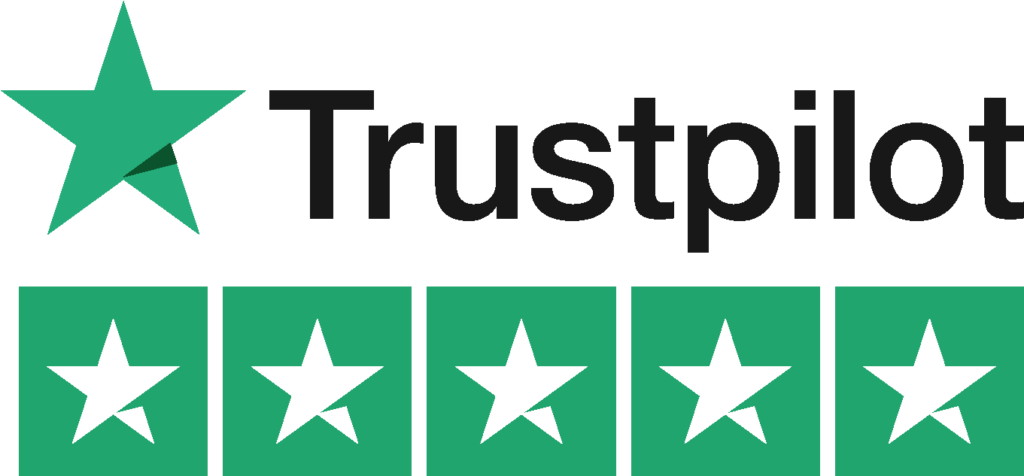If you’re running an HVAC company, you know how important it is to dominate the online game.
I mean, think about it – when people need HVAC services, they’re probably going to hit up Google or some other search engine. And if your website ain’t showing up in those search results?
Man, you could be missing out on all kinds of business.
That’s where SEO comes in. SEO is all about optimizing your website and online presence to rank higher in search engine results pages (SERPs).
A study by Moz found that the first page of Google search results receives 95% of all clicks. This means that if your HVAC company’s website isn’t ranking on the first page, you could be missing out on a significant amount of traffic.

And in this blog, we’re gonna give you a detailed guide on how to boost your SEO for your HVAC company. We’ll cover everything from choosing the right keywords to using local SEO tactics and technical SEO strategies.
Follow these tips and you’ll be well on your way to improving your online presence and attracting more potential customers.
Let’s do this!
What is HVAC SEO?
HVAC SEO, or heating, ventilation, and air conditioning search engine optimization, is the practice of optimizing your online presence as an HVAC company to rank higher in search engine results pages (SERPs).
This can include things like choosing the right keywords, optimizing your website’s on-page SEO, creating high-quality content, building quality backlinks, using social media, using local SEO tactics, and using technical SEO tactics.
The goal of HVAC SEO is to improve the visibility and credibility of your HVAC company online and attract more potential customers.
Why is HVAC SEO important?
The simple answer is that it can help bring more qualified leads to your business. When someone searches for HVAC-related services in their area, you want your company to show up as one of the top results.
This is especially important in the competitive HVAC industry, where customers have a wide range of options to choose from. By investing in HVAC SEO, you can increase your visibility and attract more customers who are actively searching for your services.
According to a survey by BrightEdge, organic search drives 51% of website traffic. This means that investing in SEO can have a significant impact on the amount of traffic your HVAC company’s website receives.
Choose the right keywords
Keywords are the terms and phrases that people use when searching for HVAC services on search engines. If you want to rank higher in the SERPs, you need to make sure that your website is optimized for the right keywords.
To find the right keywords for your HVAC company, you can use tools like Google’s Keyword Planner. This tool will show you the average monthly searches for specific keywords and phrases, as well as the competition level for each keyword.
Incorporating target keywords throughout your HVAC website design is essential for search engines to determine the relevance of your web pages to a search.
To do this, you should first understand what potential customers are searching for and then use those keywords in your website’s headers, copy, and HTML code.
Some relevant keywords for an HVAC company in Los Angeles might include “Los Angeles HVAC,” “HVAC in Los Angeles,” “Los Angeles heating and cooling,” or “Los Angeles furnace repair.”
It’s important to use these keywords naturally and not stuff them unnecessarily into your content. If you want your website to rank for multiple keywords, you might consider creating separate web pages for each keyword.
When choosing keywords, it’s important to aim for a balance between high search volume and low competition. This means you should choose keywords that have a decent number of searches per month, but not too many other HVAC companies are targeting them.
Performing keyword research can help you identify the key topics, words, and phrases that will benefit both your users and your website.
How to find Low-Hanging Fruit Keywords for HVAC SEO
Start with long-tail keywords
Long-tail keywords are more specific and less competitive than short-tail keywords. For example, “furnace repair in Los Angeles” is a long-tail keyword, while “furnace repair” is a short-tail keyword.
Because long-tail keywords are more specific, they tend to have lower search volume, but they can also be easier to rank for and can bring more qualified traffic to your website.
Use keyword research tools
There are a number of tools available that can help you research and identify low-hanging fruit keywords. Some popular options include Google’s Keyword Planner, Ahrefs, and SEMrush.
These tools can provide data on search volume, competition level, and other factors that can help you identify keywords that are worth targeting.
Look for local keywords
Local keywords, such as “AC repair in Dallas,” can be particularly effective for HVAC businesses because they are targeted to a specific geographic area. These keywords often have lower competition and can bring highly qualified traffic to your website.
Analyze your competitors
Another effective way to find low-hanging fruit keywords is to analyze the keywords that your competitors are ranking for. This can give you insight into the types of keywords that are working for them and can help you identify opportunities to differentiate your business and target unique keywords.
Use customer feedback
Finally, don’t forget to ask your customers for feedback. They can provide valuable insight into the types of keywords that they use when searching for HVAC services and can help you identify opportunities to target those keywords on your website
Optimize your website’s on-page SEO
On-page SEO refers to the optimizations you make to your website’s individual pages and content.
On-page SEO is an important aspect of building a successful online presence, and by following these tips, you can optimize your website to rank higher in search engine results pages (SERPs) and bring more qualified traffic to your site.
Use relevant and high-quality content
Make sure that your website’s content is relevant to your target audience and includes the keywords that you have identified as important for your HVAC business. High-quality content can also help to increase the credibility of your website and make it more likely that people will want to link to your site.
For example, if you own an HVAC business in Dallas, you might create a page on your website that provides information about AC repair in Dallas.
This page could include the key phrase “AC repair in Dallas” as well as other relevant keywords and detailed, helpful information about your AC repair services.
Optimize your page titles and meta descriptions
The page title and meta description are important elements of on-page SEO because they appear in the SERPs and can influence the way that people perceive your website.
Make sure to include your targeted keywords in these elements and keep them concise and descriptive.
For example, your page title might be “AC Repair in Dallas: Expert Maintenance and Repair Services” and your meta description might be “Looking for reliable AC repair in Dallas? Our team of experienced technicians can help with all your AC maintenance and repair needs. Contact us today for a free quote.”
Use header tags
Header tags (H1, H2, etc.) are used to structure the content on your website and can help search engines understand the hierarchy of your content. Use header tags to break up your content into sections and use your targeted keywords in the headings.
For example, you might use the H1 tag for your main heading, “AC Repair in Dallas,” and use H2 tags for subheadings like “Expert Maintenance Services,” “Fast and Reliable Repair,” and “Contact Us for a Free Quote.”
Optimize your images
Use descriptive and relevant file names for your images, and include alt text that describes the content of the image. This can help search engines understand the content of your images and improve the accessibility of your website.
For example, instead of using a file name like “image1.jpg,” you might use a file name like “dallas-ac-repair.jpg” and include alt text like “AC repair technicians in Dallas working on a faulty air conditioning unit.”
Use internal linking
Internal linking refers to the process of linking to other pages on your website from within your content. This can help search engines understand the hierarchy of your content and improve the user experience by making it easier for people to navigate your website.
For example, you might link to your “AC Repair in Dallas” page from within a page on your website that provides information about the benefits of regular AC maintenance.
Optimize your website’s loading speed
A slow-loading website can be frustrating for users and can also negatively impact your search engine rankings. Make sure to optimize your website’s loading speed by minimizing the size of your images, using a fast web hosting provider, and minimizing the use of large, resource-intensive plugins.
By following these tips, you can improve your website’s on-page SEO and increase its visibility in search engine results, which can ultimately lead to more qualified traffic and more leads and sales for your HVAC business.
SEO leads have a 14.6% close rate, compared to just 1.7% for outbound leads (Source: WebFX)
Build quality backlinks
Backlinks are links from other websites to your website. Building high-quality backlinks is an important aspect of SEO for your HVAC business.
Backlinks are links from other websites to your website, and they can help to improve your search engine rankings and increase the credibility of your website.
Here are some tips for building quality backlinks for your HVAC SEO:
Create valuable, shareable content
One of the best ways to earn backlinks is to create valuable, shareable content that people will want to link to. This might include blog posts, infographics, videos, or other types of content that provide value to your target audience.
For example, you might create a blog post that provides detailed information about the benefits of regular HVAC maintenance. If the content is useful and informative, other websites in the HVAC industry might link to your post as a resource for their own readers.
Reach out to other websites
Another way to build backlinks is to reach out to other websites and ask for a link. This might involve asking for a link to your website in a guest post, or simply asking for a link in exchange for linking to the other website from your own site. Just be sure to only reach out to websites that are relevant to your HVAC business and have a high domain authority to ensure that the link will be of value to your website.
Participate in online communities
Online communities, such as forums and social media groups, can be a great source of backlinks. By actively participating in these communities and providing helpful, informative content, you can build relationships and earn backlinks from other members.
Use local directories
Local directories, such as Yelp and Google My Business, can be a good source of backlinks for HVAC businesses. By claiming your listing on these directories and adding detailed information about your business, you can improve your visibility in search results and earn backlinks from these high-authority websites.
Monitor and track your backlinks
Finally, it’s important to monitor and track your backlinks to ensure that they are of high quality and are helping to improve your search engine rankings. There are a number of tools available, such as Ahrefs and SEMrush, that can help you track and analyze your backlinks.
Use local SEO tactics for HVAC business
Local SEO is an important aspect of building a successful online presence for your HVAC business. Local SEO refers to the process of optimizing your website and online presence to rank higher in search engine results for searches related to your location.
Local SEO leads have a 50% close rate, compared to just 13% for outbound leads (Source: WebFX)
Here are some tips for doing local SEO for your HVAC business:
Claim and optimize your Google My Business listing
Google My Business is a free tool that allows you to manage your business’s online presence across Google, including in search results and on Google Maps.
By claiming and optimizing your Google My Business listing, you can improve your visibility in local search results and make it easier for people to find your business.
To optimize your listing, make sure to include accurate and complete information about your business, including your business name, address, phone number, and website. You can also add photos, descriptions, and business hours to help people learn more about your business.
Use local keywords
Local keywords, such as “HVAC repair in Dallas,” can be particularly effective for HVAC businesses because they are targeted to a specific geographic area. By including local keywords in your website’s content and meta tags, you can improve your visibility in local search results and bring more qualified traffic to your website.
Build local backlinks
Building backlinks from local websites can also help to improve your local SEO. This might involve reaching out to local organizations or businesses and asking for a link, or contributing content to local news websites or blogs.
Use local schema markup
Local schema markup is a type of code that you can add to your website to help search engines understand the location of your business and the services that you offer. By adding local schema markup to your website, you can improve your visibility in local search results and make it easier for people to find your business.
Encourage online reviews
Online reviews can be a powerful way to improve your local SEO and build credibility for your HVAC business. Encourage your customers to leave reviews on websites like Google My Business, Yelp, and Facebook, and make sure to respond to both positive and negative reviews in a professional and helpful manner.
By following these tips and being consistent in your efforts, you can improve your local SEO and increase the visibility of your HVAC business in local search results
Use technical SEO tactics
Technical SEO refers to the process of optimizing the technical aspects of your website in order to improve its visibility in search engine results and make it more user-friendly.
Here are some tips for doing technical SEO for your HVAC business:
Ensure that your website is mobile-friendly
With more and more people using their phones to search the internet, it’s important to make sure that your website is mobile-friendly. This means that your website should be easy to use and navigate on a mobile device, and should have a responsive design that adjusts to the size of the screen.
To check if your website is mobile-friendly, you can use Google’s Mobile-Friendly Test tool. If your website is not mobile-friendly, you might consider making some updates to improve its usability on mobile devices.
Improve your website’s loading speed
A slow-loading website can be frustrating for users and can also negatively impact your search engine rankings. Make sure to optimize your website’s loading speed by minimizing the size of your images, using a fast web hosting provider, and minimizing the use of large, resource-intensive plugins.
You can use tools like GTmetrix and PageSpeed Insights to test your website’s loading speed and get recommendations for improvements.
Use SSL or HTTPS
HTTPS is a secure version of the HTTP protocol that is used to transmit data over the internet. By using HTTPS on your website, you can improve its security and privacy, and you may also receive a slight boost in search engine rankings.
To switch to HTTPS, you will need to obtain an SSL certificate and update your website’s URLs to use the HTTPS protocol. You can use tools like SSL Shopper to help you find the right SSL certificate for your website.
Use a sitemap
A sitemap is a file that lists all the pages on your website and helps search engines understand the structure of your content. By creating and submitting a sitemap to search engines like Google, you can make it easier for them to crawl and index your website, which can improve your search engine rankings.
You can use tools like XML-Sitemaps or the Yoast SEO plugin for WordPress to generate a sitemap for your website. Simply create the sitemap and then submit it to search engines using their respective webmaster tools.
Use structured data
Structured data is a type of code that you can add to your website to help search engines understand the content and context of your website.
By using structured data, you can provide additional information about your business and the services that you offer, which can improve your visibility in search results and make it easier for people to find your business.
You can use tools like Google’s Structured Data Markup Helper or the JSON-LD for SEO plugin for WordPress to add structured data to your website. Simply select the type of content that you want to mark up, add the relevant information, and then add the generated code to your website.
How we can help?
Are you looking for a reliable and effective SEO provider for your HVAC business?
Look no further than Clickseo Lab! Our team of experienced professionals has a proven track record of helping businesses like yours improve their search engine rankings and drive more qualified traffic and leads.
Our comprehensive SEO services are tailored to the specific needs of your HVAC business, and we take a holistic approach to optimization that covers all aspects of your online presence.
From on-page optimization and local SEO to technical SEO and link building, we have the skills and expertise to help you succeed.
Contact us today to learn more about how we can help you maximize your SEO and grow your HVAC business.
Conclusion
In conclusion, maximizing SEO for your HVAC business is a crucial aspect of building a successful online presence.
By following the tips outlined in this comprehensive guide, you can improve your website’s search engine rankings, drive qualified traffic to your website, and ultimately, generate more leads and sales for your business.
Remember, SEO is not a one-time effort, but rather a continuous process of research, optimization, and tracking.
By staying up to date with the latest SEO trends and best practices, you can continually improve your website’s performance and reach your business goals.
So don’t be afraid to get your hands dirty and start optimizing your website for SEO today. The payoff will be worth it in the long run.
“SEO is not dead, it’s just evolving.”
Stay ahead of the game and you’ll be on your way to success in no time.

















